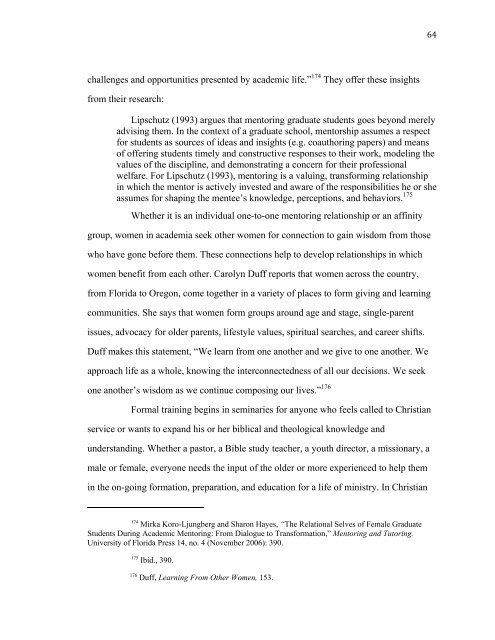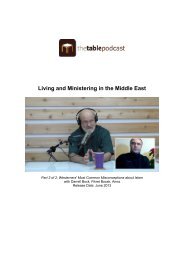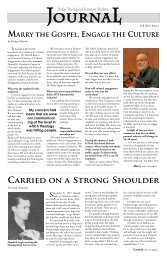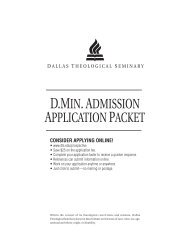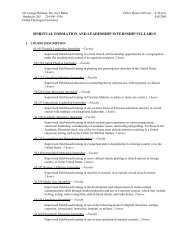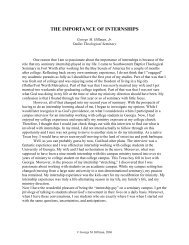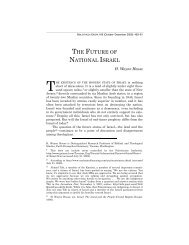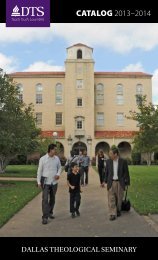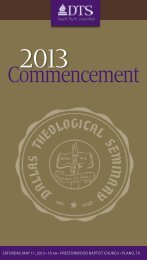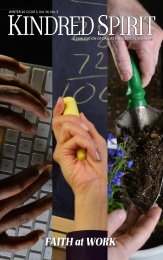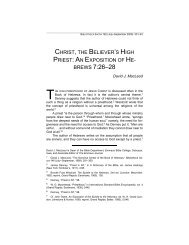Complete Dissertaton - Final for Print with new editing - Dallas ...
Complete Dissertaton - Final for Print with new editing - Dallas ...
Complete Dissertaton - Final for Print with new editing - Dallas ...
You also want an ePaper? Increase the reach of your titles
YUMPU automatically turns print PDFs into web optimized ePapers that Google loves.
64 <br />
challenges and opportunities presented by academic life.” 174 They offer these insights<br />
from their research:<br />
Lipschutz (1993) argues that mentoring graduate students goes beyond merely<br />
advising them. In the context of a graduate school, mentorship assumes a respect<br />
<strong>for</strong> students as sources of ideas and insights (e.g. coauthoring papers) and means<br />
of offering students timely and constructive responses to their work, modeling the<br />
values of the discipline, and demonstrating a concern <strong>for</strong> their professional<br />
welfare. For Lipschutz (1993), mentoring is a valuing, trans<strong>for</strong>ming relationship<br />
in which the mentor is actively invested and aware of the responsibilities he or she<br />
assumes <strong>for</strong> shaping the mentee’s knowledge, perceptions, and behaviors. 175<br />
Whether it is an individual one-to-one mentoring relationship or an affinity<br />
group, women in academia seek other women <strong>for</strong> connection to gain wisdom from those<br />
who have gone be<strong>for</strong>e them. These connections help to develop relationships in which<br />
women benefit from each other. Carolyn Duff reports that women across the country,<br />
from Florida to Oregon, come together in a variety of places to <strong>for</strong>m giving and learning<br />
communities. She says that women <strong>for</strong>m groups around age and stage, single-parent<br />
issues, advocacy <strong>for</strong> older parents, lifestyle values, spiritual searches, and career shifts.<br />
Duff makes this statement, “We learn from one another and we give to one another. We<br />
approach life as a whole, knowing the interconnectedness of all our decisions. We seek<br />
one another’s wisdom as we continue composing our lives.” 176<br />
Formal training begins in seminaries <strong>for</strong> anyone who feels called to Christian<br />
service or wants to expand his or her biblical and theological knowledge and<br />
understanding. Whether a pastor, a Bible study teacher, a youth director, a missionary, a<br />
male or female, everyone needs the input of the older or more experienced to help them<br />
in the on-going <strong>for</strong>mation, preparation, and education <strong>for</strong> a life of ministry. In Christian<br />
174 Mirka Koro-Ljungberg and Sharon Hayes, “The Relational Selves of Female Graduate<br />
Students During Academic Mentoring: From Dialogue to Trans<strong>for</strong>mation,” Mentoring and Tutoring.<br />
University of Florida Press 14, no. 4 (November 2006): 390.<br />
175 Ibid., 390.<br />
176 Duff, Learning From Other Women, 153.


